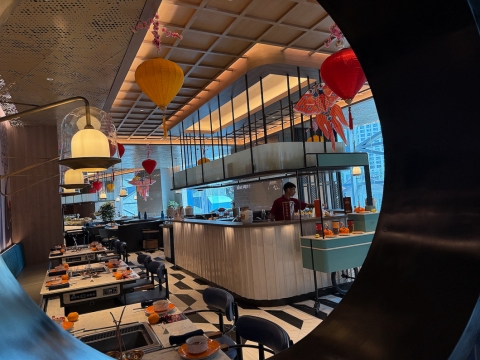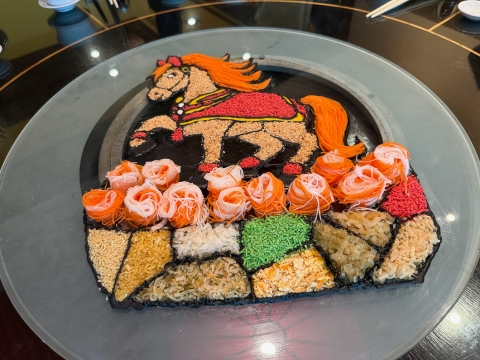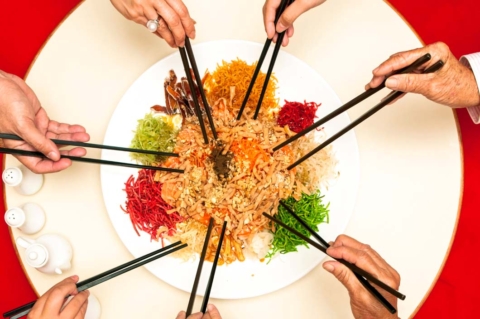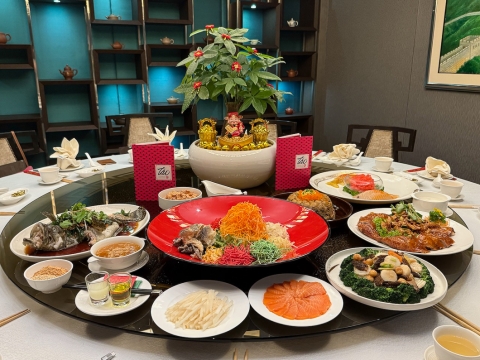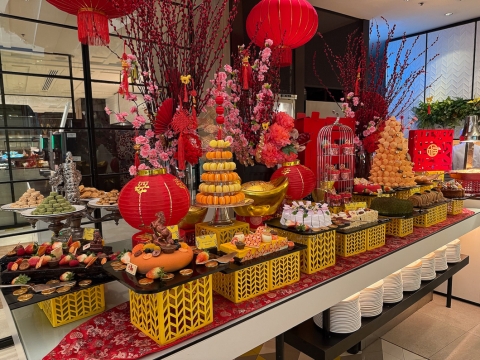Malaysia, a colourful kaleidoscope of intriguing cultures and races. Each with its own unique habits, food, religion and celebrations. In this first post of the new year, let us take you on a journey through the festivals of Malaysia!
When you’re living in Malaysia, you simply can’t deny the beautiful diversity this country has got to offer. Indian, Malay and Chinese inhabitants on both the peninsula and Sabah and Sarawak are treating this country to a great display of festivals.
Thaipusam

This year, Thaipusam falls on 28 January. January is the tenth month in the Tamil calendar (Thai) and Pusam means ‘when the star is at its brightest’. Thaipusam is a Tamil festival for Hindus of all castes and cultures, in dedication to Lord Murugan, the Hindu God of War.
The festival of Thaipusam was only brought to Malaysia in the 1800s, when Indian immigrants started to work on the Malaysian rubber estates and in government offices. Thaipusam was first celebrated at Batu Caves in 1888.
Chariot procession
Before the festival day itself, there’s traditionally an early morning chariot procession, starting from the Sri Maha Mariamman temple in Jalan Tun HS Lee in KL. The silverplated chariot with a statue of Lord Murugan on top is taken all the way to Batu Caves.
Those celebrating Thaipusam wear yellow clothes and carry pots of milk on their heads, to show their love to Lord Murugan. Others carry kavadis on their shoulders. These are heavy frameworks with long chains hanging down with hooks at the end, which are pushed into the backs of the carriers. Ouch. The devotees say though they don’t feel any pain due to the trance they’re in, which brings them closer to Lord Murugan.
This festival is a national holiday in Johor, Kuala Lumpur, Negeri Sembilan, Penang, Perak, Putrajaya and Selangor.
Did you know that 28 January 2021 falls on a Thursday? You could take the Friday after Thaipusam off and enjoy a 4-days holiday with the family! More info about Thaipusam here.
Chinese New Year

Chinese New Year starts on the new moon and falls this year on 12 and 13 February. It’s commonly called ‘Spring Festival’ in China and marks the end of winter and the beginning of the spring season. We will enter the year of the Ox.
Yee sang
“Lo hei, lo hei!’ This means pretty much ‘to rise high’. If you’ve ever experienced Chinese New Year in Malaysia, you know that shouting out “Lo hei” accompanies tossing a raw fish salad high in the air with your chopsticks. It’s a great thing to do with kids! How nice to toss food around for good luck, without people staring at you…
Eating the traditional yee sang dish is a Chinese way to hope for prosperity in the new year. More about this tasty dish in our article here.
Lion dances this year?
If you want to read more on CNY traditions like the reunion dinner, ang bao, spring cleaning and traditional decorations, have a look at our article here. Lion dances are a tradition in Malaysia during Chinese New Year. Have a look here at our article here. Could they be happening this year…?
Hari Raya Aidilfitri

Aidilfitri is a religious holiday celebrated by Muslims worldwide. It marks the end of the dawn-to-sunset fasting of Ramadhan, a month of spiritual cleansing. Fasting includes not only abstaining from food, but also from drinking, smoking and sexual relations. It is important during this month to focus on a pure mind, not to have bad thoughts and helping others who need our support.
Just before Hari Raya Aidilfitri, families buy new clothes, nice foods and decorate their homes with green, yellow and gold. When the new moon shows on the evening of the last day of Ramadan, the fasting period comes to an end.
Open houses and Balik Kampung
On the first days of Aidilfitri people normally catch up with close family. After Hari Raya Aidilfitri families organise an open house, to invite other guests. This is also the time when Muslims who live in the big cities ‘Balik Kampung’ to visit friends and relatives. Have a look at our article here.
Hari Raya Aidilfitri falls on 13 and 14 May 2021, which are a Thursday and a Friday. What a great opportunity to go on a getaway for four days!
Wesak Day

Buddhists in Malaysia celebrate Buddha’s birth, enlightenment and death on Wesak Day. It is sometimes referred to as Buddha’s Birthday. Wesak Day is celebrated on the Sunday that is closest to the full moon in May.
Attendees at Wesak Day services also make donations and pray. They offer flowers and candles, a reminder to them that everything is temporary. Monks chant the teachings of Buddha, and they raise the flag of Buddha. Some temples give away flags of Buddha for people to hang in their homes.
In Georgetown, Penang, Buddhists go to the Malaysian Buddhist Association building to wash a statue of Buddha. They believe this ritual will cleanse their souls and purify them.
It was only in 1950 during a Buddhist conference in Sri Lanka that the attendees formalised the celebration of Hari Wesak. So you could say this celebration is very recent, compared to many other festivals in Malaysia.
This year, Hari Wesak is celebrated on 26 May.
The Harvest Festival

The Harvest Festival is closely connected to rice cultivation and is celebrated in Sabah and Labuan. It’s widely known as Pesta Ka’amatan. Farmers and families give thanks to the spirits and gods for the harvest. They also pray that the gods will bless them with more harvest the following year. It is a time to seek forgiveness and an opportunity to strengthen friendships.
An important ceremony is the Magavau. It used to be enacted in the paddy fields on the first full moon after the harvest, to invite the Rice Spirit. The Harvest Festival often comes with a karaoke contest (the Sugandoi) and a beauty pageant. You can find more info on this festival here. The festival falls on 30 and 31 May.
Hari Gawai
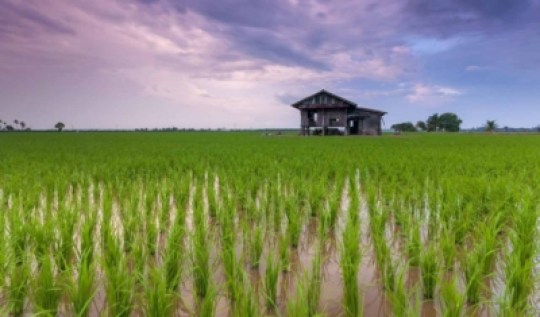
This festival is celebrated in Sarawak on 1 and 2 June each year. It is a both a religious and social event. This festival marks the end of the harvesting season, but also the start of a new farming season. A lot of locals return to their village for the celebrations. Normally, a month before Hari Gawai, the locals prepare rice wine or tuak. It won’t come as a surprise that the Gawai celebration comes with a lot of singing, dancing and drinking… You can read more here about Hari Gawai.
Deepavali

Deepavali (or Diwali) is a Sanskrit word meaning ‘rows of lighted lamps’. Known among Hindus as the Festival of Lights, Deepavali signifies the triumph of light over darkness and the victory of good over evil. The preparations for the festival typically last five days.
Colourful Brickfields
With colourful textiles, flower garlands, kolams and mehendi decorations on hands and feet, Deepavali is a very colourful festival. A great place to visit during Deepavali is Brickfields. Have a look at our article about this neighbourhood here.
Broken rice and oil lamps
In the weeks before Deepavali, people will prepare by cleaning and decorating their homes with little oil lamps and kolams. These are beautiful rice decorations on the floor with broken pieces of colourful rice. A great thing for kids to do! People also attend ceremonies in honour of Lakshmi, the goddess of prosperity and wealth. They light fireworks and have family feasts.
Deepavali falls this year on 4 November. This is a Thursday, so when you take Friday of, you can plan for a 4-day break with the family! Looking for ideas? Have a look at our article here.
Christmas

Christmas is a celebration in honour of the birth of Jesus, son of God. God sent his son to the world to show his love for humanity, and it brought great joy to the world. It’s a time to spread joy, to renew hope and strength. Families gather for celebrations around a lighted Christmas tree at home and ‘Santa’ hands out presents to all. The feasts are often accompanied with food like turkey, ham, mince pies and Christmas cakes. The figure of Santa Claus typifies the cheerful spirit at Christmas, bringing joy, peace, happiness, good food and wine. How did we celebrate last year? Have a look at this article here from our EcoMama.
Christmas falls on 25 December this year.
We won’t know how this year will look like. The world is still fighting Covid-19. Will we be able to celebrate the way we used to be? Can we see our loved ones again overseas and join them for celebrations? No matter which festival you participate in, let’s all pray and hope for the best. Enjoy the festivals in Malaysia and be safe!





